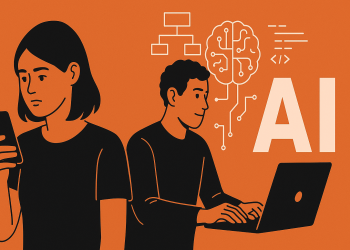No products in the cart.
Gen Z Faces AI-Hiring Challenges in 2025: Navigating a Stalled Job Market
In 2025, Gen Z graduates face an uphill battle against a frozen job market shaped by AI and automation. Discover the dynamics of this new economy.
As the sun rises over a bustling cityscape, a new generation stands at the threshold of their careers, eager yet anxious. For many Gen Z graduates in 2025, the once-promising horizon has turned into a fog of uncertainty. Welcome to the era of ‘No Hire, No Fire’ — a paradoxical economy where automation reigns and job opportunities dwindle.
With each passing day, the reality solidifies: the traditional pathways into employment are crumbling. Automation, heralded as a tool of efficiency, is now a formidable barrier. Companies are tightening their belts, opting for technological solutions over human capital. This shift leaves many new graduates staring at an empty inbox, their resumes echoing in silence.

In a recent report from the Bureau of Labor Statistics, job openings for entry-level positions have dropped by 30% since last year, a stark reminder of the technological tide washing over the job market [1]. For Gen Z, who entered college amid economic upheaval, this new landscape feels like a betrayal. They were promised a future where their skills would flourish, yet they find themselves competing against algorithms designed to streamline processes and reduce costs.
To understand the depth of this predicament, we must first examine the roots of the ‘No Hire, No Fire’ mentality. In a world where layoffs and hiring freezes dominate headlines, companies are adopting a cautious approach. They are hesitant to bring on new talent, fearing the volatility of the current economic climate. This cautiousness, however, has morphed into a paralyzing ethos, stifling innovation and growth.
They were promised a future where their skills would flourish, yet they find themselves competing against algorithms designed to streamline processes and reduce costs.
Consider the story of Mia, a recent graduate with a degree in marketing. She spent four years honing her skills, immersing herself in digital campaigns and social media strategies. Yet, despite her efforts, she finds herself working part-time at a coffee shop, her degree collecting dust. “I applied to over 100 jobs this summer,” she shares, frustration etched across her face. “I thought I was prepared, but no one is hiring. It’s like I’m invisible.”
Her experience is not unique. Across the globe, young graduates are facing similar tales of woe. As companies lean heavily on automation, the need for entry-level positions diminishes. A study by the McKinsey Global Institute found that up to 30% of jobs could be automated by 2030, disproportionately affecting roles typically filled by recent graduates [2]. The future looks bleak, but it doesn’t have to be.
Some industry leaders are advocating for a shift in mindset. Instead of clinging to traditional hiring practices, they are encouraging companies to embrace flexible work models that adapt to the changing landscape. “We need to rethink how we view talent,” says David Chen, CEO of InnovateTech. “It’s not just about filling positions; it’s about harnessing the skills of a diverse workforce, even if that means looking beyond the usual metrics.”
The gig economy is also emerging as a potential lifeline for many. Freelancing, remote work, and side hustles have become increasingly viable options for young professionals seeking to navigate this uncertain terrain. Websites like Upwork and Fiverr are bustling with opportunities for those willing to take the plunge into independent work. However, this path is not without its challenges. The lack of job security, benefits, and consistent income raises pressing questions about the sustainability of this model.
It’s imperative for educational institutions to adapt to this new reality. Programs that focus on fostering entrepreneurial skills, digital literacy, and adaptability can empower students to thrive in an unpredictable landscape. In a world where the only constant is change, the ability to pivot and innovate will be crucial.
Moreover, mentorship programs connecting students with industry professionals can provide invaluable insights and networking opportunities. By bridging the gap between academia and the workforce, we can cultivate a generation of resilient leaders ready to tackle the challenges of tomorrow.
“It’s not just about filling positions; it’s about harnessing the skills of a diverse workforce, even if that means looking beyond the usual metrics.”
As we look to the future, it’s clear that Gen Z cannot afford to be passive participants in this narrative. They must become proactive agents of change. By harnessing their unique perspectives and embracing new technologies, they can carve out their own paths to success.
The landscape may be daunting, but within the challenges lies a wealth of opportunity. The world is evolving, and with it, the definition of work. It’s time for the next generation to step forward, equipped with the tools to redefine success in a rapidly changing job market.











